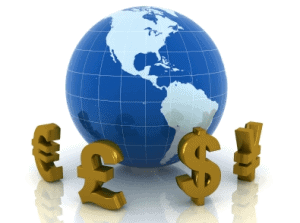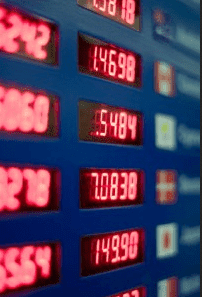Forex trading is the buying and selling of currencies from different countries, essentially trading the currencies against each other.
Individual traders or retail investors engage in this trade by means of speculating the future rates of various currency pairs. As such, these traders will buy or sell any currency pairs, whose rates are likely to go up or down, respectively, according to market forecasts.
It is important to note that as a retail trader, you cannot engage directly in the trading, but through facilitation by a forex broker.
Understanding the Forex Trading Strategies

Some of the common strategies that you can use include:
1) Price Action Based Trading
In this method, your trading decisions are based on an analysis of indicator-free price charts, commonly referred to as a “clean” charts. This method is favorable since it uses the ‘core’ price market data, thus making it easy for you to understand the price movements.
2) Forex Robots
Robot trading systems are computer applications that automate the trading process. The robots will analyze complex scenarios and advise you on where to enter and exit. The main benefit of using these robots is that human interaction is limited, thus helps you to save time.
3) Indicator Based Trading
This forex trading method will require you to analyze “lagging” indicators, in an effort to predict a forex currency pair’s future price movement.
4) Scalping
If you are interested in short-term gains from forex trading, then this is the ideal method for you. Scalping involves the quick buying and selling of forex in order to make small profits. It is particularly useful when one of the currencies you are targeting is experiencing unexpected gains due to external factors, which are likely to stabilize within a short period.
What are the Benefits of Forex Trading?
Below is a look at some of the ways that you will benefit as an individual retail investor.
- Accessibility: You can undertake forex trading from any geographical location, provided you have a computer and internet connection.
- Huge Gains: Forex trading experiences dense liquidity due to the large volume of trading that occurs on a daily basis. This liquidity enables you to buy and sell, whenever you want and at a price of your choosing.
- Convenience: Forex trading offers you flexible trading hours. Therefore, you can work any time of day or night, and for the number of hours that you desire.
- Low Start-up Costs: With forex, you just need a computer and internet connection to start making money. You can work full-time from your home, or take it up as a part-time engagement.
- Simplicity: Unlike stock or commodity trading, forex trading involves fewer variables.
- Market Bias: Forex trading doesn’t not experience the inherent market bias that is common with other markets. An example is the bullish bias stocks. Hence, any volatility in the forex market, regardless of whether it is rising or falling presents great opportunities for you to benefit.
How to Determine Forex Rates

- Political Stability: The political situation, whether local, regional or international has a great influence on the forex currency markets.
- Economic Factors: The economic situation that results from the various government economic policies has a great influence on the forex market.
- Trading Algorithms: The introduction of electronic based trading has resulted in the creating of algorithms that can be used for determining the forex rates.
- Market Psychology: Psychology may sometimes be used to influence the forex market rates.
Keen to know more on how to trade Forex successfully? Click on the button below:
